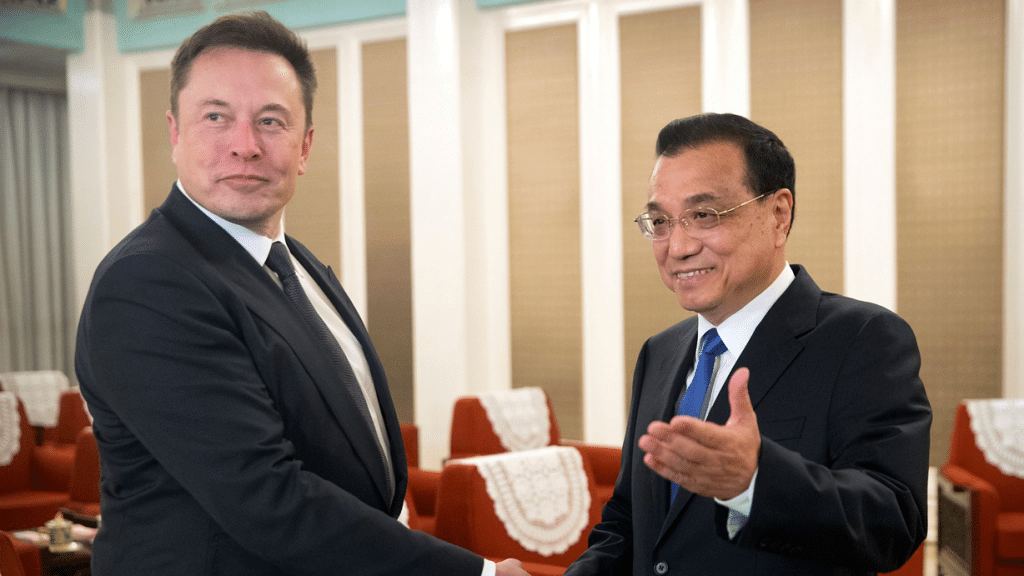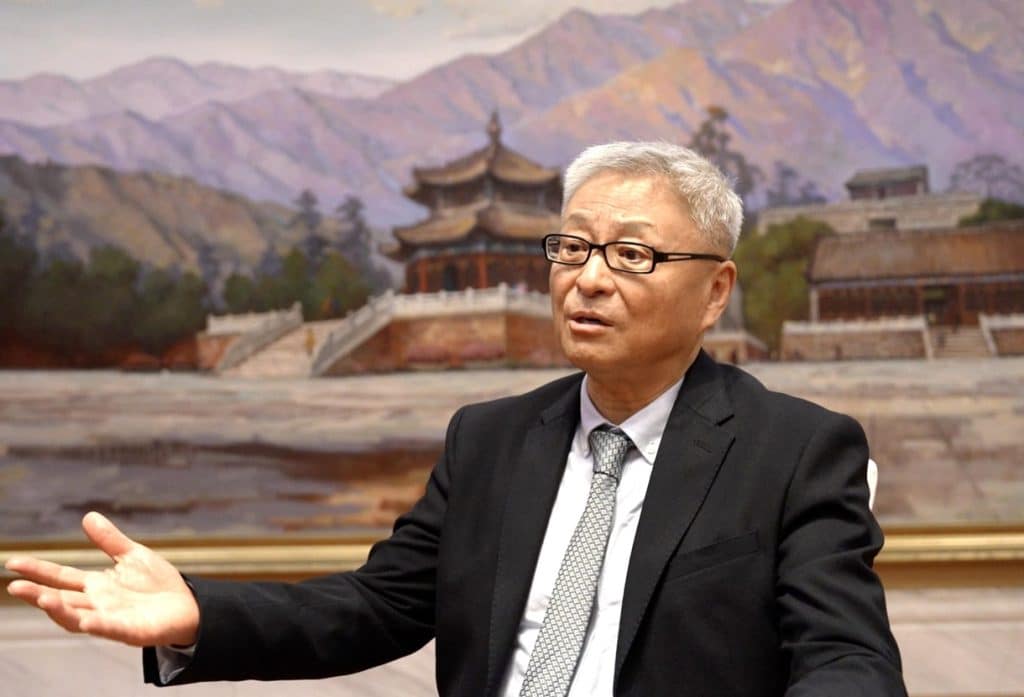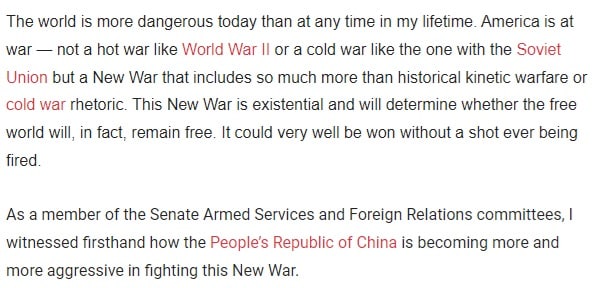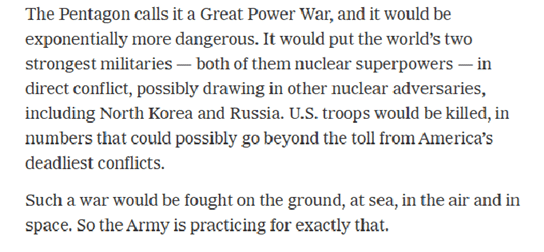纽约时报:美国试图通过中国阻止朝鲜部队支持俄罗斯作战
《纽约时报》今天(2024年10月31日)发表了题为“美国试图通过中国阻止朝鲜部队支持俄罗斯作战”(U.S. Turns to China to Stop North Korean Troops From Fighting for Russia)的报道。文章指出,朝鲜派遣军队进入俄罗斯支持其乌克兰战争行动,使美国对地区安全的关注进一步提升。美国希望通过与中国对话来向朝鲜传达威胁信息。
以下是对该文部分段落的翻译和总结,文章的英文全文附在翻译段落之后。

一
美国政府认为,随着俄朝安全合作关系的快速加强,中国对这种关系的影响力正在减弱。中国作为朝鲜的长期盟友以及其最强大的经济与军事合作伙伴,正面临俄罗斯在平壤影响力上的挑战。朝鲜在乌克兰的军事干预也将欧洲进一步拉入东亚的安全事务,而这是中国所不希望看到的。
二
近期,美国国务院直接向中国官员提出了朝鲜军队赴俄的问题。据报道,本周二,美国副国务卿坎贝尔(Kurt Campbell)、东亚事务高级官员康达(Daniel J. Kritenbrink)和欧洲事务高级官员詹姆斯·奥布莱恩(James O’Brien)与中国驻美大使谢锋在华盛顿举行了长时间会晤。布林肯国务卿同一天还与乌克兰高级官员安德里·叶尔马克(Andriy Yermak)进行了讨论,涉及美国对华外交努力以及其他国家的应对策略。
三
白宫国家安全顾问杰克·沙利文(Jake Sullivan)指示美国各政府机构向中国传达对朝鲜干预的担忧,并强调可能的后果。布林肯在新闻发布会上指出,俄罗斯可能会在未来几天将朝鲜军队投入战斗,且一旦朝鲜军队参战,它们将成为合法的军事目标。
四
美国希望中国至少能将此信息传达给朝鲜领导人金正恩,甚至可能劝说朝鲜限制或中止部署。早在朝鲜部队进入俄罗斯之前,布林肯已在与中国高级外交官王毅的会谈中提及俄朝合作关系的迅速加深。
五
近年来,中俄关系不断紧密。2022年2月,北京在俄罗斯全面入侵乌克兰之前宣布了“无上限”合作伙伴关系。美国官员指出,中国通过购买俄罗斯石油和开战贸易支持俄罗斯的战争努力,这使得俄罗斯的国防工业在美国和欧洲主导的制裁之下不至于崩溃。虽然表面上看中国似乎会支持朝鲜部队与俄罗斯一起对抗乌克兰军队,但实际上中国的态度并不明朗。
六
五角大楼近日宣布,朝鲜已向俄罗斯东部派遣了1万名士兵进行作战训练,部分部队正向俄罗斯西部移动准备对抗乌克兰军队。这一行动让人联想到朝鲜战争期间的“中朝俄”联盟。历史上的三国联盟其实比表面上更加脆弱,而当今的关系性质也不清晰。
七
美国官员和分析人士指出,尽管三国在意识形态上反对美国,但作为该集团中最强大的国家,中国对俄朝关系的深化感到不安。分析人士担心,如果朝鲜在乌克兰的军事行动进一步吸引欧洲关注东亚安全问题,包括台海和朝鲜半岛等地区,中国可能面临更多的战略挑战。中国坚决反对美国促成跨大西洋和太平洋盟友之间的更紧密联系。
八
美国国务院发言人马修·米勒(Matthew Miller)表示,美国已直接向中国明确指出,此问题应引起中国及地区其他国家的关注。白宫发言人约翰·柯比(John F. Kirby)补充说,中国官方通常强调对该地区的稳定需求,这意味着中国应对朝鲜军事干预感到关切。
九
美国官员希望包括欧洲国家、日本和韩国在内的盟友也向中国表达他们对朝鲜的担忧。布林肯和国防部长劳埃德·奥斯汀(Lloyd J. Austin III)本周与韩国同行在华盛顿会晤,讨论了此问题。国际危机组织(International Crisis Group)的高级研究员阿里·怀恩(Ali Wyne)指出,美国可能会利用朝鲜的挑衅重新调整对中国的战略考量。
十
布鲁金斯学会中国问题专家何瑞恩(Ryan Hass)指出,任何关于俄朝关系将破坏中俄关系的判断只是“希望”,而非“证据”。何瑞恩认为,中国对与俄罗斯的关系密切,朝鲜派遣部队并不会动摇中国坚定支持普京的决心。
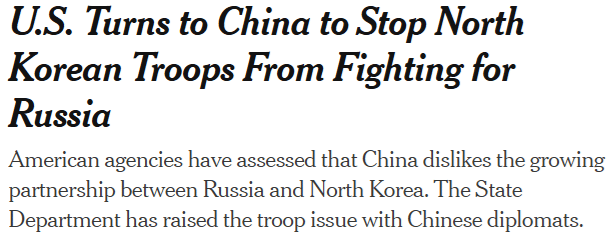
U.S. Turns to China to Stop North Korean Troops From Fighting for Russia
American agencies have assessed that China dislikes the growing partnership between Russia and North Korea. The State Department has raised the troop issue with Chinese diplomats.
By Edward Wong
The Biden administration is turning to an unlikely interlocutor as North Korean troops move into combat position to help Russia in its war in Ukraine.
To convey threats to North Korea, U.S. officials are talking to China.
And American officials say they hope the conversations further stoke any suspicions China might feel about the troop deployment.
The U.S. government has assessed that China is uneasy about the rapidly strengthening security partnership between Russia and North Korea. China is North Korea’s longtime ally and its most powerful economic and military partner, but the Russia-North Korea collaboration means Beijing has to increasingly share influence over Pyongyang with Moscow.
And North Korea’s intervention in Ukraine draws Europe deeper into East Asian security matters, which China does not want. On Thursday, North Korea launched an intercontinental ballistic missile, its first such test in almost a year, raising alarms among nations around the world.
The State Department has raised the issue of the troops directly with Chinese officials in recent days, a senior administration official told The New York Times. The latest conversation took place on Tuesday, when Kurt Campbell, the deputy secretary of state, Daniel J. Kritenbrink, the department’s top Asia official, and James O’Brien, the top Europe official, all met with Chinese diplomats for several hours at the home of Ambassador Xie Feng in Washington.
And Secretary of State Antony J. Blinken spoke to Andriy Yermak, a top Ukrainian official, the same day about diplomatic efforts with China and other nations, the official said. Mr. Blinken said at a news conference on Thursday that he expected Russia to send the North Koreans into combat “in the coming days,” and that they would be legitimate military targets once they were in battle.
Jake Sullivan, President Biden’s national security adviser, has urged U.S. agencies to convey the concerns to China and stress potential consequences, a second U.S. official said. The official declined to give more details.
The hope is that China will at the very least pass the message on to Kim Jong-un, the young autocrat leading North Korea, or try to get Mr. Kim to limit or halt the deployment.
Even before news of the North Korean troops emerged in public, Mr. Blinken had raised the country’s growing partnership with Russia in recent meetings with Wang Yi, China’s top foreign policy official, the first U.S. official said.
China and Russia have been getting closer themselves over many years. In February 2022, Beijing announced a “no limits” partnership with Moscow right before the Russian military’s full-scale invasion of Ukraine. U.S. officials say China supports Russia’s war efforts by buying Russian oil and doing trade that has helped President Vladimir V. Putin rebuild his country’s defense industry, which is under severe American and European-led sanctions.
So on the surface, it might seem that China would support the idea of North Korean troops fighting with Russia against Ukrainian soldiers.
Yet China’s views on the issue are murky, and U.S. intelligence agencies are trying to figure out what China’s leader, Xi Jinping, and other top Chinese officials think of the deployment, which Mr. Biden has called “very dangerous.”
The Pentagon announced on Monday that North Korea had sent 10,000 troops to eastern Russia to train for combat and that many were moving to western Russia to fight Ukrainian soldiers who have seized territory in the Kursk region. Some North Korean troops could end up fighting in Ukraine.
It is reminiscent of the Korean War, when China, North Korea and Russia (then the Soviet Union) fought U.S.-led troops on the Korean Peninsula. But in retrospect, that anti-American alliance was shakier than it appeared, and the nature of its contemporary incarnation is unclear.
American officials and analysts say the three nations with Communist roots are still ideologically aligned against the United States. But they also say China, as the most powerful nation in the group, is uneasy about the renewed bond between Russia and North Korea, which relies on China to prop up its isolated economy.
And China could be irate if European nations get more involved in East Asian security issues — including on Taiwan and the Korean Peninsula — as a result of North Koreans fighting for Russia in Europe, analysts say. China opposes the United States encouraging its Atlantic and Pacific allies and partners to forge greater ties.
If there is tension within China over the North Korean troop deployment, American officials would aim to exploit it.
Matthew Miller, the State Department spokesman, told reporters on Wednesday that the United States had been talking directly to China “to make clear that we think this ought to be a source of concern for China as well as other countries in the region.”
Last week, John F. Kirby, a White House spokesman, said: “We don’t know how President Xi and the Chinese are looking at this. One would think that — if you take their comments at face value about desiring stability and security in the region, particularly on the Korean Peninsula — one would think that they’re also deeply concerned by this development.”
“But,” he added, “you can expect that we’ll be communicating with the Chinese about this and certainly sharing our perspectives to the degree we can — and gleaning theirs.”
When asked to comment on the North Korea issue for this article, the Chinese Embassy in Washington referred to remarks by Lin Jian, a Chinese foreign ministry spokesman, at a news conference last week in Beijing. Answering a question about the North Korean troops, he reiterated China’s main talking point on the Ukraine war: “We hope all parties will promote the de-escalation of the situation and strive for a political settlement.”
American officials also hope allies will express their concerns about North Korea to China. That includes European nations, Japan and South Korea, all of which have important trade ties with China. On Thursday, Mr. Blinken and Defense Secretary Lloyd J. Austin III spoke with their South Korean counterparts in Washington about the issue.
“It would not be surprising if U.S. officials try to leverage North Korea’s provocation to shift the calculus of their Chinese counterparts,” said Ali Wyne, a senior researcher on U.S.-China relations at the International Crisis Group.
The American goal, he added, would be “to underscore concerns that are likely growing in Beijing: that it may have overestimated its influence over Moscow and Pyongyang, and that those two care little about the reputational costs that it stands to incur should instability expand across Europe and Asia.”
Yun Sun, the director of the China program at the Stimson Center, said she met with officials in China in September who had a “negative attitude” about Russia-North Korea relations.
The general view, she said, is that Russia and North Korea have “selfish incentives that have acted against regional peace and stability, and that their alignment will only bolster their capabilities in such endeavors.”
“More importantly,” she said, “the Chinese detestation of the Russia-North Korea rapprochement comes from the conviction that Kim Jong-un is ‘using Russia to poke China.’”
In September 2023, Mr. Kim and Mr. Putin pledged closer cooperation when they met at a cosmodrome in Russia’s Far East. This June, the two signed a mutual defense pact that hearkened back to their nations’ Cold War alliance. The North Korean troops going to fight in Russia appear to fit within the contours of that treaty.
China has approached North Korea with wariness in recent years. Chinese officials are disturbed by North Korea’s military provocations in Asia, including its frequent launches of ballistic missiles. China prefers that North Korea curb its robust nuclear weapons program, and it even joined Russia years ago in approving United Nations sanctions pushed by two American presidents against North Korea.
More recently, China has helped North Korea evade some of those sanctions but remains uneasy about its nuclear program, analysts say.
There is no doubt that Chinese officials will be watching to see whether Russia shares nuclear and space technology with North Korea in exchange for its troops.
“From a Chinese perspective, you’re concerned about specific technologies that the Russians could help with to advance the program that much more,” said John Delury, a historian of modern China and the Cold War. “And there’s also intelligence sharing — this is a classic way that countries with this kind of partnership rapidly upgrade their relationship. If you’re China, you’re worried about Russia and North Korea sharing intelligence, which could include intelligence on China.”
The consequences of North Korean troops fighting in Europe could be far-reaching. Besides possibly bringing Europe deeper into East Asian security discussions, it would most likely reinforce the growing military coalition of Japan, South Korea and the United States, which is aimed at countering both China and North Korea.
On the other hand, any reservations Chinese officials might have about the North Korean troops could be minor next to the nation’s foreign policy priorities. Mr. Xi and Mr. Putin have formed a strong personal bond over the years, and China has given Russia diplomatic and economic aid throughout the Ukraine war, while stopping short of sending weapons directly to the Russian military.
“North Korea’s provision of troops to Russia supports this top-tier priority, even though it also complicates Beijing’s efforts to stabilize relations with Seoul and Tokyo,” said Ryan Hass, a China expert at the Brookings Institution who was on the National Security Council during the Obama administration.
“Any American judgment that the Russia-North Korea collaboration will create space to drive a wedge between China and Russia would be built on hope, not evidence,” he added. “China is deeply invested in its relationship with Russia. North Korea’s dispatch of troops is not going to diminish China’s decision to stand firmly behind Putin.”
作者
-

徐宇深是本站特约撰稿人,曾在卡特中心和亚洲协会实习。

